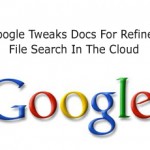 Redmond, Washington — Microsoft’s search engine Bing over the weekend rolled out a way to sift among billions of airfares much faster that it is now auto-suggesting flight prices directly from the Bing search box. A new feature called “Price Predictor” auto-suggests flights and prices right from the search box, according to a Bing blog post. Bing already provides quick price predictions for some major US markets using its Farecast technology, but the Redmond, Wash.-based company unfurled an even faster way to get predictions and quick flight cost information, this time right from within the search bar:
Redmond, Washington — Microsoft’s search engine Bing over the weekend rolled out a way to sift among billions of airfares much faster that it is now auto-suggesting flight prices directly from the Bing search box. A new feature called “Price Predictor” auto-suggests flights and prices right from the search box, according to a Bing blog post. Bing already provides quick price predictions for some major US markets using its Farecast technology, but the Redmond, Wash.-based company unfurled an even faster way to get predictions and quick flight cost information, this time right from within the search bar:

As soon as you start entering your query, for example, “Seattle to JFK,” a menu drops down, telling you the best price, it will bring up a prediction for what Bing Travel deems the best flight price deal within the next 90 days, and if you should buy now because prices are going up, or if you can hold off for a much better fare.
“Bing travel crunches over a billion airfares on a daily basis to bring you Price Predictors, and we use that data to uncover cheap airline tickets every day,” explains Bing’s David Lindheimer on the Bing Search blog. “With Autosuggest Flight Prices natural language capab
ilities, you can simply type ‘Fly to Chicago’ or ‘Chicago Flights’ and Bing will immediately establish where you are, in this case Seattle, and instantaneously display the Price Predictor based on your location.”
Furthermore, as you can notice, you do not even have to type in an airport code, neither the full name of the city, the search box will bring up travel price predictions based on natural language queries (you can simply type in “fly to, flights, etc.):

“Do not worry about entering the formal city name or airport name,” adds Lindheimer. “Bing Travel recognizes colloquial names like Chi Town.”
To collect this price information, Bing uses ITA Software’s data. Bing said the new feature is now active for key markets.
Nevertheless, this will be a good way to introduce Price Predictors and Bing Travel to more Bing users, and is certainly the quickest way available to check on the latest airfare prices.
However, Google is reportedly discussing with the Department of Justice to prevent having to go to court over its acquisition of travel software service ITA Software for $700 million. The ITA Software maintains a database of flight information, including fare comparisons and flight schedules for many major U.S. airlines, including American and United Airlines.
Companies such as Microsoft and Kayak.com, which use the data, are opposing the merger because they claim it will stifle competition. Besides, Bing is a member of the FairSearch Coalition, whose sole purpose is to see that this acquisition is blocked.
Interestingly others, such as Expedia.com, are also against the deal even though they do not depend on data from ITA. The American Antitrust Institute also recently spoke out against it, calling it a “unregulatable monopoly.”


